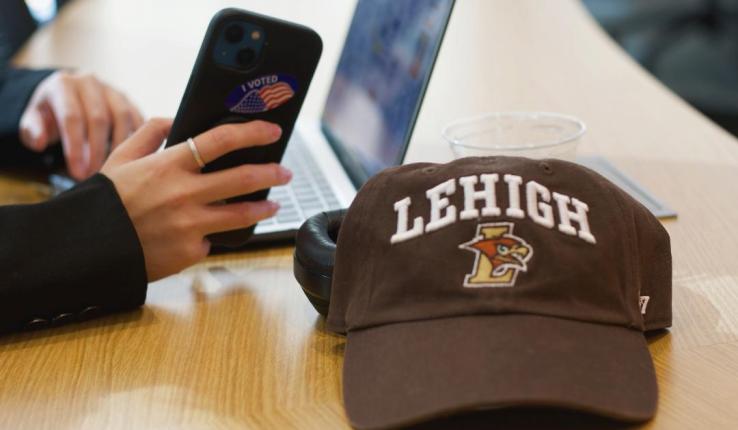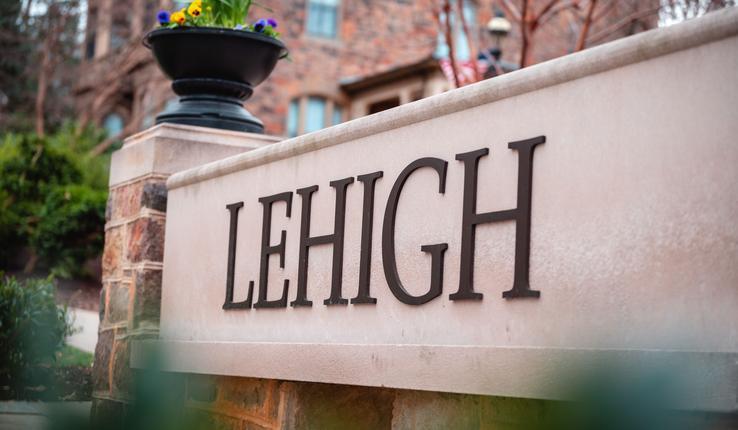Education Leaders Assess a Trump Presidency

The Lehigh University School Study Council hosts “Politics and Possibilities” event with Pennsylvania Secretary of Education Pedro Rivera at the Wood Dining Hall.
Educational leaders from across the Lehigh Valley region tried to sort through the potential impact of President-elect Donald Trump’s shocking win as well as statewide election results as they gathered Wednesday at Lehigh to discuss current and future issues regarding school governance.
Hosted by the Lehigh University School Study Council, the “Politics and Possibilities” event in the Wood Dining Room at Iacocca Hall drew Pennsylvania Secretary of Education Pedro Rivera, who addressed the representatives of some 40 area school districts that belong to the council.
What does the presidential election mean for Pennsylvania, its communities and its children? Rivera asked. “As history has taught us,” he said, “there’s still much to be seen.” He said state leaders don’t yet know the implications of the election but will have a better idea at the end of the month when state education chiefs from across the country meet with members of the administration-elect.
On the campaign trail, Trump spoke broadly about education but he expressed support for expanding school choice and cutting back the reach of the U.S. Department of Education. He has said that Common Core is “a disaster” and that education should be “local.”
“Yesterday was a reminder for all of us to continue to engage and do some of the work that we already have [been doing],” Rivera said. “I think yesterday was a reminder as to why this work of staying informed and staying actively engaged is especially important.”
Joining Rivera at the event were Bethlehem Area School District Superintendent Joseph Roy and panelists Jay Himes, executive director of the Pennsylvania Association of School Business Officials; Hannah Barrick, the association’s director of advocacy; Nathan Mains, executive director of the Pennsylvania School Boards Association; and Jim Buckheit, executive director of the Pennsylvania Association of School Administrators.
“If you go through American history, we’ve had some very interesting presidents,” Buckheit said. “And yet somehow…we survived. We came through it, and we got stronger ultimately in the end. These things are not transformational, as much as we want to think. The larger forces of our nation, of our economy, of our system of government ultimately get us in the right place at the end of the day.
“These next four years are going to be really interesting,” he acknowledged. “But we survived Millard Fillmore, James Buchanan, Calvin Coolidge, Herbert Hoover, and we came out the other side doing just fine. It’s painful living it, but ultimately, in the long term, we’ll be okay.”
Buckheit said Trump has a “very different view” about education than the current administration, and he doubts that any bi-partisanship that was displayed on educational issues will continue. He pointed out the president-elect has put a number of issues on the table, including possible dissolution of the Department of Education. If Trump decides to keep it, though, who will be its new leader? he asked.
“All this change has serious implications in the rollout of ESSA [Every Student Succeeds Act],” he said. Signed by President Obama in 2015, the act ends heavy federal involvement in public education and returns power to the states and local school districts to improve troubled schools.
Buckheit said he expects a front-burner issue to be whether states can use Title 1 money—the federal program that provides funding to local school districts to improve the academic achievements of disadvantaged students—for voucher programs that would allow school choice. He said he expects “a serious push” from the federal government to at least give states the option of shifting that money.
“All this is going to create a very interesting 2017 for education policy, on the federal level and on the state level,” Buckheit said. “Hang on for the ride.”
Rivera acknowledged state election results also could have implications on education policies, with the Senate Republicans picking up three additional seats, which gives them a veto-proof majority over Gov. Tom Wolfe. In the past, Wolfe has used his veto power to reject Republican-proposed education cuts.
But, Rivera said, the election outcome was never going to change the fact that his team will be addressing several major educational issues, including graduation standards and the Every Student Succeeds Act. He said the administration would continue to push and advocate for future financial investments in education, including the extension of early childhood programs and educational resources for all children.
“We have a generation of kids who are expecting us to do right by them,” he told the school leaders.
He encouraged them to share facts with lawmakers and to advocate for students. “If we speak through one collective voice,” he said, “we won’t have to worry about a veto-proof majority, we won’t have to worry about needing enough votes to pass bills that matter to improve the quality of life for kids.”
Rivera offered solace to those who might have been reeling from the election results.
“Feel free to feel horrible all day today,” he said. “But we have work to do, and we’re going to wake up tomorrow, and we’re going to ensure that…we do right by the children of the Commonwealth...We have far too much at stake.”
Posted on:




